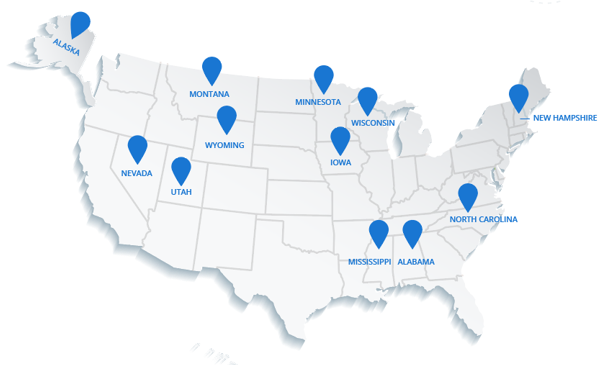To apply for exciting and relevant APP jobs in your region, click on the links below:
- High paying family nurse practitioner job
- Remote physician assistant job
- CRNA job in Pittsburgh, PA
- High paying CRNA job in Findlay, OH
Learn Networking Skills, for NPs, PAs, CNS, and CRNAs
Did you know that over two-thirds of all job offers for APRN, PA, CNS, CRNA, and other APRNs are discovered through networking? That's a compelling statistic. But it's not the only reason we recommend learning networking skills for APPs. For nurse practitioners (NPs) or physician assistants (PAs), clinical nurse specialists (CNS), or certified registered nurse anesthetists (CRNAs) networking is a great way to build relationships and then leverage those relationships throughout your career. Networking can result in leadership within your organization or other organizations including professional organizations. NP, PA, CNS, and CRNA, collectively called advanced practice providers (APPs), networking can also lead to research opportunities, fellowships, faculty or guest lecturer positions, and many other opportunities. Here are suggestions to learn networking skills. APP networking doesn't have to be intimidating. It's simply showing up and meeting people who already share many of your interests and passions. So step out with confidence. You can look forward to learning something from each person you meet.
Three of the most effective ways build your networking skills for APPs
Informational Interviews “ APPs who network can learn more about a new job opportunity by meeting one-on-one with someone who works in the that role or specialty. Most professionals are happy to share their experiences over a cup of coffee,. it is helpful to come prepared with questions that will provide insight into the job and role of the person you meet with. Clinicals “ APPs who are in student clinicals can network with the NPs, physicians, and preceptors they work with. They can answer questions about the real-world working environment and may have job leads to share. If there is a facility you particularly enjoy, it's fine to ask: "Can I send you my resume for any future employment opportunities. Do you see yourself hiring a nurse practitioner within the next 6-8 months?" Expressing your interest can help open professional doors with employers. Professional Associations “ Joining a professional association adds credibility to your resume, but the real benefits come from participating in chapter and national events. APPs can network with healthcare professionals at all levels of your industry, including peers, leaders, physicians, and other professionals. Most associations also offer career development resources, training sessions, leadership opportunities, and newsletters to help you stay current. For APPs, we recommend membership in one or more of the following professional healthcare associations:
- National Association of Pediatric Nurse Practitioners (NAPNAP)“ NAPNAP.org
- American Association of Nurse Practitioners (AANP) “ AANP.org
- American Academy of Pediatrics (AAP) “ aap.org
- American Academy of Physician Assistants (AAPA) “ aapa.org
- Society of Physician Assistants in Pediatrics (SPAP) - https://thespap.wildapricot.org/
Learn Networking Skills for APPs
As you get out and build your professional network, there are also a few rules-of-engagement to keep in mind. Have appropriate expectations. Very few connections will have an immediate payoff, such as a lead on a job opportunity. There is still great value in meeting other people, learning what they do, and seeing your profession from someone else's perspective. Give to receive. In any relationship, both parties must contribute. Be generous and give of yourself. Even if you are just starting out, you have much to offer. Be encouraging, smile, tell a humorous story, or give a recommendation on a new local restaurant. Be positive and professional. You want to always maintain the same professional image at networking events that you keep up at the workplace. This pertains to your attire and your attitude. Dress professionally. Don't gossip or share too much information. And, avoid negativity about your profession or your employer at all costs. Be prepared with talking points and ask questions to demonstrate genuine interest in the person you are talking to. Have a career roadmap. Each year take time to build your professional roadmap. Are you considering a leadership position, research, or quality projects, identify people in your fields who are already invested in these areas to learn from them.
Invest in Yourself
An investment in your professional network is an investment in your future. So make this practice part of your routine, whether you're currently searching for a job or are happily employed. The relationships that you build today can reap dividends for you in the years to come.
This article was originally published on Melnic. It was recently acquired by DirectShifts.
.png?width=50&height=50&name=Cube-Logo-150x150%20(1).png)
March 21, 2022




Comments